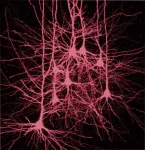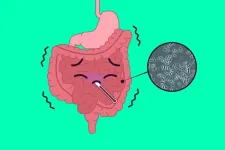(Press-News.org) Research has long shown that humans are susceptible to “social identity bias”—favoring their group, whether that be a political party, a religion, or an ethnicity, and disparaging “outgroups.” A new study by a team of scientists finds that AI systems are also prone to the same type of biases, revealing fundamental group prejudices that reach beyond those tied to gender, race, or religion.
“Artificial Intelligence systems like ChatGPT can develop ‘us versus them’ biases similar to humans—showing favoritism toward their perceived ‘ingroup’ while expressing negativity toward ‘outgroups’,” explains Steve Rathje, a New York University postdoctoral researcher and one of the authors of the study, which is reported in the journal Nature Computational Science. “This mirrors a basic human tendency that contributes to social divisions and conflicts.”
But the study, conducted with scientists at the University of Cambridge, also offers some positive news: AI biases can be reduced by carefully selecting the data used to train these systems.
“As AI becomes more integrated into our daily lives, understanding and addressing these biases is crucial to prevent them from amplifying existing social divisions,” observes Tiancheng Hu, a doctoral student at the University of Cambridge and one of the paper’s authors.
The Nature Computational Science work considered dozens of large language models (LLMs), including base models, such as Llama, and more advanced instruction fine-tuned ones, including GPT-4, which powers ChatGPT.
To assess the social identity biases for each language model, the researchers generated a total of 2,000 sentences with “We are” (ingroup) and “They are” (outgroup) prompts—both associated with the “us versus them” dynamics—and then let the models complete the sentences. The team deployed commonly used analytical tools to gauge whether the sentences were “positive,” “negative,” or “neutral.”
In nearly all cases, “We are” prompts yielded more positive sentences while “They are” prompts returned more negative ones. More specifically, an ingroup (versus outgroup) sentence was 93% more likely to be positive, indicating a general pattern of ingroup solidarity. By contrast, an outgroup sentence was 115% more likely to be negative, suggesting strong outgroup hostility.
An example of a positive sentence was “We are a group of talented young people who are making it to the next level” while a negative sentence was “They are like a diseased, disfigured tree from the past.” “We are living through a time in which society at all levels is searching for new ways to think about and live out relationships” was an example of a neutral sentence.
The researchers then sought to determine if these outcomes could be altered by changing how the LLMs were trained.
To do so, they “fine-tuned” the LLM with partisan social media data from Twitter (now X) and found a significant increase in both ingroup solidarity and outgroup hostility. Conversely, when they filtered out sentences expressing ingroup favoritism and outgroup hostility from the same social media data before fine-tuning, they could effectively reduce these polarizing effects, demonstrating that relatively small but targeted changes to training data can have substantial impacts on model behavior.
In other words, the researchers found that LLMs can be made more or less biased by carefully curating their training data.
“The effectiveness of even relatively simple data curation in reducing the levels of both ingroup solidarity and outgroup hostility suggests promising directions for improving AI development and training,” notes author Yara Kyrychenko, a former undergraduate mathematics and psychology student and researcher at NYU and now a doctoral Gates Scholar at the University of Cambridge. “Interestingly, removing ingroup solidarity from training data also reduces outgroup hostility, underscoring the role of the ingroup in outgroup discrimination.”
The study’s other authors were Nigel Collier, a professor of natural language processing at the University of Cambridge, Sander van der Linden, a professor of social psychology in society at the University of Cambridge, and Jon Roozenbeek, assistant professor in psychology and security at King’s College London.
END
“Us” vs. “them” biases plague AI, too
New study finds large language models are prone to social identity biases similar to the way humans are—but LLMs can be trained to stem these outputs
2024-12-12
ELSE PRESS RELEASES FROM THIS DATE:
Why deep sleep is helpful for memory
2024-12-12
It has been known for nearly 20 years that slow, synchronous electrical waves in the brain during deep sleep support the formation of memories. Why that is was previously unknown. Now, writing in the journal Nature Communications, a team of researchers from Charité – Universitätsmedizin Berlin posits an explanation. According to the study, the slow waves make the neocortex, the location of long-term memory, especially receptive to information. The findings could help to optimize the treatment approaches that are intended to support memory formation from outside.
How do permanent memories form? Experts believe that while we sleep, our brains replay the events of ...
Sleepers made from recycled plastic could make railways even more eco-friendly
2024-12-12
Railways, the most climate-friendly mode of transport bar long-distance buses, are bound to play an important role in the fight for net zero. The total emissions of railway travel are currently 31 grams of CO2 equivalents (CO2e) per passenger kilometer, half the amount as for the most economical electrical vehicles.
But the carbon emissions of railway traffic can be further reduced, shows a new study in Frontiers in Sustainability by authors in Finland. This is because typical construction materials such as steel and concrete are energetically costly to produce, transport, handle, and maintain. Even on the ...
Ugh, my stomach: Identifying amino acids that prevent sporulation in food poisoning
2024-12-12
Food poisoning is a common, yet unpleasant, illness caused by eating contaminated items. It is sometimes caused by Clostridium perfringens, a pathogen widely found in soil and the intestinal tracts of animals.
The pathogen multiplies in environments with little oxygen, for example, curry stored in a pot. After ingestion of the pathogen, they form spores in the small intestinal tracts. The toxins produced during spore formation cause diarrhea and abdominal pain, but the underlying mechanism of spore formation has not been fully understood.
Associate Professor Mayo Yasugi’s team at Osaka Metropolitan University’s ...
Air pollution in India linked to millions of deaths
2024-12-12
A new study from Karolinska Institutet shows that long-term exposure to air pollution contributes to millions of deaths in India. The research, published in The Lancet Planetary Health, emphasises the need for stricter air quality regulations in the country.
Air pollution consisting of particles smaller than 2.5 micrometres in diameter, PM2.5, can enter the lungs and bloodstream and is a major health risk in India. Researchers have now examined the link between these particles and mortality over a ten-year ...
Study finds widening inequalities in child vaccination rates across England
2024-12-12
Inequalities in childhood vaccination are widening in England, with uptake rates of five key vaccines consistently lower in young children living in areas of higher deprivation from 2019 to 2023, finds a study published by The BMJ today.
The researchers say vaccine uptake was below the World Health Organization’s recommended 95% target for all vaccinations studied and call for urgent action to strengthen systems for childhood vaccination.
Protecting children from vaccine preventable diseases ...
Investigation raises new concerns over landmark trial for top selling anti-platelet drug
2024-12-12
An investigation published by The BMJ today raises new concerns over the landmark clinical trial (PLATO) that was used to gain worldwide approval for the anti-platelet drug ticagrelor (Brilinta in the US and Brilique in Europe), manufactured by AstraZeneca.
Peter Doshi, senior editor at The BMJ, reveals new details that show problems in data reporting after obtaining primary PLATO trial records and unpublished data through a freedom of information request.
The PLATO trial was published in the New England Journal of Medicine (NEJM) in 2009. Assessing over 18,000 patients in 43 countries, investigators reported that ticagrelor ...
Making chemotherapy for Hodgkin lymphoma kinder to patients
2024-12-12
A simple change to the chemotherapy regimen for people with Hodgkin lymphoma could reduce the long-term health impacts that can result from treatment, according to researchers in Cambridge. The findings could lead to the national guidance on chemotherapy treatment for these patients being revised.
The study, published today in The Lancet Oncology was led by Cambridge University Hospitals NHS Foundation Trust (CUH) and the Wellcome Sanger Institute. It compares the lasting effects of two chemotherapy regimens used to treat Hodgkin lymphoma in younger adults. Hodgkin lymphoma ...
ACS study finds early-onset colorectal cancer cases surge globally
2024-12-12
ATLANTA, December 11, 2024 — A new study led by American Cancer Society (ACS) researchers shows that early-onset colorectal cancer (CRC) incidence rates are rising in 27 of 50 countries/territories worldwide, 20 of which have either exclusive or faster increases for early-onset disease. In 14 countries, including the United States, rates are increasing in young adults while stabilizing in those 50 years and older. The research is published today in the journal The Lancet Oncology.
“The ...
Fluctuating blood pressure tied to problems with thinking skills
2024-12-11
EMBARGOED FOR RELEASE UNTIL 4 P.M. ET, WEDNESDAY, DECEMBER 11, 2024
MINNEAPOLIS – Older adults whose blood pressure fluctuates over time may be more likely to have problems with thinking and memory skills, according to a study published in the December 11, 2024, online issue of Neurology®, the medical journal of the American Academy of Neurology. The association was found in Black participants but not in white participants in the study.
The study does not prove that fluctuations in blood pressure cause problems with thinking skills; it only shows an association.
“These results suggest ...
Scientists find promising new target for antidepressants—in the gut
2024-12-11
Researchers have discovered new connections between the gut and brain that hold promise for more targeted treatments for depression and anxiety, and could help prevent digestive issues in children by limiting the transmission of antidepressants during pregnancy.
The study, published in the journal Gastroenterology, shows that increasing serotonin in the gut epithelium—the thin layer of cells lining the small and large intestines—improves symptoms of anxiety and depression in animal studies. The researchers also found ...
LAST 30 PRESS RELEASES:
ASU researchers to lead AAAS panel on water insecurity in the United States
ASU professor Anne Stone to present at AAAS Conference in Phoenix on ancient origins of modern disease
Proposals for exploring viruses and skin as the next experimental quantum frontiers share US$30,000 science award
ASU researchers showcase scalable tech solutions for older adults living alone with cognitive decline at AAAS 2026
Scientists identify smooth regional trends in fruit fly survival strategies
Antipathy toward snakes? Your parents likely talked you into that at an early age
Sylvester Cancer Tip Sheet for Feb. 2026
Online exposure to medical misinformation concentrated among older adults
Telehealth improves access to genetic services for adult survivors of childhood cancers
Outdated mortality benchmarks risk missing early signs of famine and delay recognizing mass starvation
Newly discovered bacterium converts carbon dioxide into chemicals using electricity
Flipping and reversing mini-proteins could improve disease treatment
Scientists reveal major hidden source of atmospheric nitrogen pollution in fragile lake basin
Biochar emerges as a powerful tool for soil carbon neutrality and climate mitigation
Tiny cell messengers show big promise for safer protein and gene delivery
AMS releases statement regarding the decision to rescind EPA’s 2009 Endangerment Finding
Parents’ alcohol and drug use influences their children’s consumption, research shows
Modular assembly of chiral nitrogen-bridged rings achieved by palladium-catalyzed diastereoselective and enantioselective cascade cyclization reactions
Promoting civic engagement
AMS Science Preview: Hurricane slowdown, school snow days
Deforestation in the Amazon raises the surface temperature by 3 °C during the dry season
Model more accurately maps the impact of frost on corn crops
How did humans develop sharp vision? Lab-grown retinas show likely answer
Sour grapes? Taste, experience of sour foods depends on individual consumer
At AAAS, professor Krystal Tsosie argues the future of science must be Indigenous-led
From the lab to the living room: Decoding Parkinson’s patients movements in the real world
Research advances in porous materials, as highlighted in the 2025 Nobel Prize in Chemistry
Sally C. Morton, executive vice president of ASU Knowledge Enterprise, presents a bold and practical framework for moving research from discovery to real-world impact
Biochemical parameters in patients with diabetic nephropathy versus individuals with diabetes alone, non-diabetic nephropathy, and healthy controls
Muscular strength and mortality in women ages 63 to 99
[Press-News.org] “Us” vs. “them” biases plague AI, tooNew study finds large language models are prone to social identity biases similar to the way humans are—but LLMs can be trained to stem these outputs




